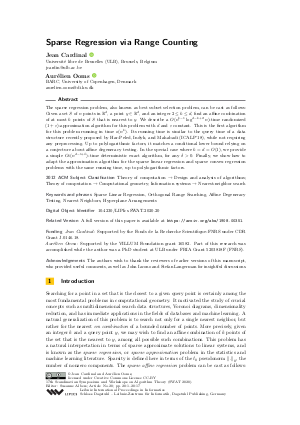LIPIcs.SWAT.2020.20.pdf
- Filesize: 0.71 MB
- 17 pages

 Creative Commons Attribution 3.0 Unported license
Creative Commons Attribution 3.0 Unported license





Feedback for Dagstuhl Publishing